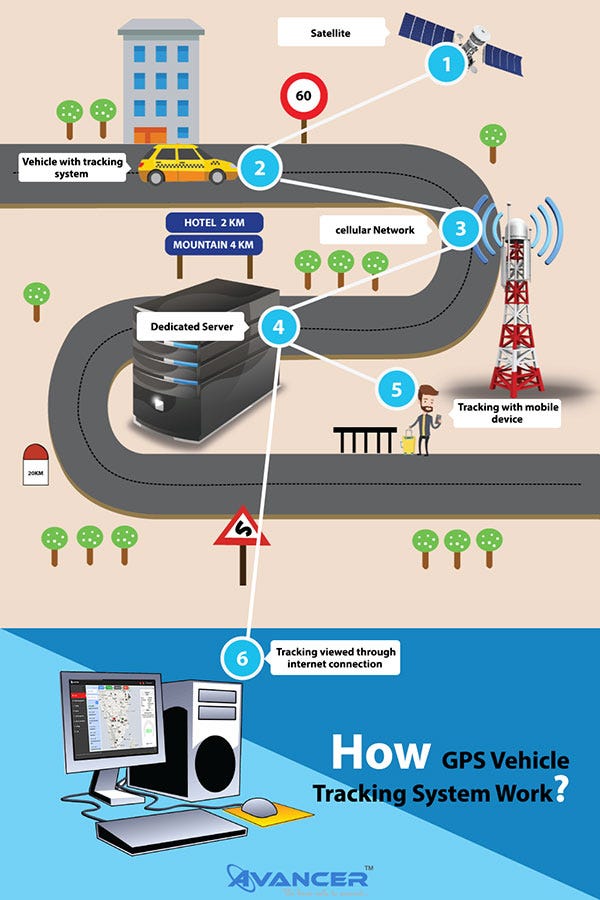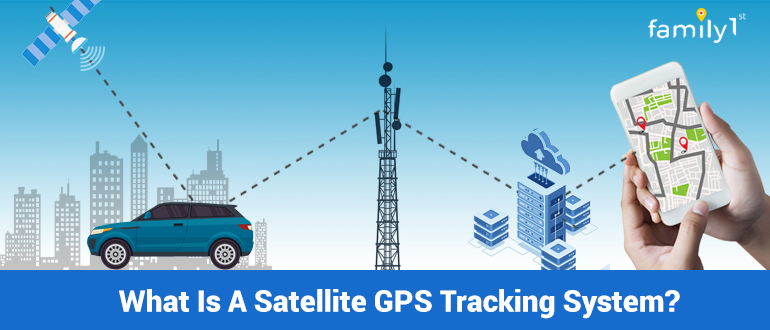How GPS Tracking Can Boost Your Organization Workflow
How GPS Tracking Can Boost Your Organization Workflow
Blog Article
Navigating the Future of GPS Monitoring: Innovations, Difficulties, and Opportunities Ahead
As we stand at the crossroads of technical developments and social implications, the landscape of general practitioner monitoring is poised for a transformative journey in advance. The advancement of GPS modern technology has actually been rapid, introducing a new era of real-time tracking abilities that promise extraordinary levels of precision and performance. However, with excellent technology comes wonderful duty, as information privacy problems impend huge and safety and security obstacles in general practitioner monitoring raising relevant inquiries regarding securing delicate details. Amidst these obstacles lie surprise chances waiting to be discovered, supplying a look into the untapped potential of a market at the edge of modification.
Development of GPS Modern Technology
The Evolution of GPS Technology has actually been marked by substantial advancements in accuracy, coverage, and performance over the years. Established for military objectives, General practitioner innovation has actually progressed to end up being a common tool in numerous sectors, consisting of transportation, logistics, farming, and personal navigation. Early GPS systems were defined by restricted coverage, lower precision, and bulkier equipment demands. With ongoing technical developments, GPS has actually transitioned to a lot more precise and reliable systems that provide international protection and enhanced accuracy.
One key milestone in the advancement of GPS innovation was the growth of Careful Accessibility (SA) in the 1990s, which deliberately weakened the precision of noncombatant GPS signals. As GPS modern technology continues to evolve, we can expect further enhancements in coverage, effectiveness, and accuracy, opening up new possibilities for innovation and applications across numerous sectors.
Real-Time Monitoring Developments
Structure on the improvements in GPS technology that have changed accuracy and protection, real-time tracking has arised as a critical location of development with profound effects across various markets. Real-time monitoring improvements make it possible for organizations and businesses to keep an eye on vehicles, assets, and employees immediately, providing valuable insights for decision-making procedures - gps tracking. By leveraging real-time data, firms can enhance operational performance, boost client service, and make certain the safety and security and safety and security of their assets
Among the key advancements in real-time monitoring is the assimilation of artificial intelligence and artificial intelligence algorithms, which allow anticipating analytics and anomaly discovery. These capabilities permit for positive maintenance organizing, path optimization, and threat reduction strategies. The development of real-time tracking systems has actually led to the growth of mobile applications and personalized control panels, encouraging individuals to access crucial information anytime, anywhere.
Data Personal Privacy Concerns

Information personal privacy problems encompass numerous facets, consisting of the storage space, sharing, and retention of place data. Businesses have to apply robust security actions to shield general practitioner tracking information from cyber risks and data breaches. Transparent policies relating to data collection practices and the function of tracking are necessary to construct trust with customers and make certain compliance with information protection guidelines.

Safety Challenges in GPS Tracking
Addressing information privacy problems in GPS monitoring is elaborately connected to alleviating the safety and security challenges that develop from potential susceptabilities in the modern technology. One of the main protection obstacles in GPS monitoring is the risk of unapproved access to delicate area data.

One more safety challenge is the potential for spoofing or jamming GPS signals. By transmitting false signals or conflicting with legitimate ones, destructive actors can deceive GPS receivers and adjust area information. This positions dangers not just for specific customers but additionally for governmental and military applications that depend on precise positioning info. Executing robust encryption, verification measures, and signal confirmation methods are critical steps in dealing with these protection obstacles in GPS monitoring.
Emerging Opportunities in the Market
The expanding area of general practitioner tracking technology presents a myriad of encouraging opportunities for industry development and innovation. One crucial opportunity hinges on the development of general practitioner monitoring applications beyond traditional industries. Industries such as logistics, transport, and fleet monitoring have actually been very early adopters of general practitioner modern technology. However, arising possibilities are currently emerging in areas like healthcare, agriculture, and environmental surveillance. For circumstances, general practitioner tracking can reinvent person care by enabling remote monitoring of crucial indicators and ensuring timely medical help. In farming, general practitioner technology can optimize crop management practices and enhance overall yield. Environmental tracking can profit from GPS monitoring by enabling real-time information collection for environment research and preservation initiatives.
Another considerable opportunity in the GPS tracking sector is the combination of sophisticated analytics and expert system. By leveraging these innovations, organizations can acquire valuable understandings from GPS data to improve functional efficiency, enhance decision-making processes, and deal individualized services to customers. In addition, the raising demand for linked tools and IoT solutions presents a ripe opportunity for GPS tracking companies to expand their offerings and create innovative services that cater to a much more connected world. By profiting from these arising possibilities, general practitioner monitoring companies can place themselves for continual development and success in the dynamic landscape of the market.
Verdict
In verdict, the future of General practitioner monitoring is noted by blog continual evolution and development in innovation. As the market moves forward, navigating these obstacles will certainly be essential to make sure the ongoing development and success of GPS monitoring innovation.
With great innovation comes excellent responsibility, as information Source personal privacy concerns loom large and safety difficulties in General practitioner tracking raising important inquiries concerning safeguarding sensitive info.With the rapid proliferation of GPS tracking modern technology in numerous industries, dealing with information privacy problems has actually become a critical necessary for both consumers and businesses alike. The collection of place data via GPS monitoring raises considerable personal privacy problems, as it allows the monitoring of people' actions and movements. Services making use of General practitioner monitoring have to focus on guarding this information to stop unapproved gain access to or misuse that could jeopardize people' personal privacy civil liberties.
Organizations have to apply durable safety and security measures to protect GPS tracking data from cyber hazards and information breaches.
Report this page